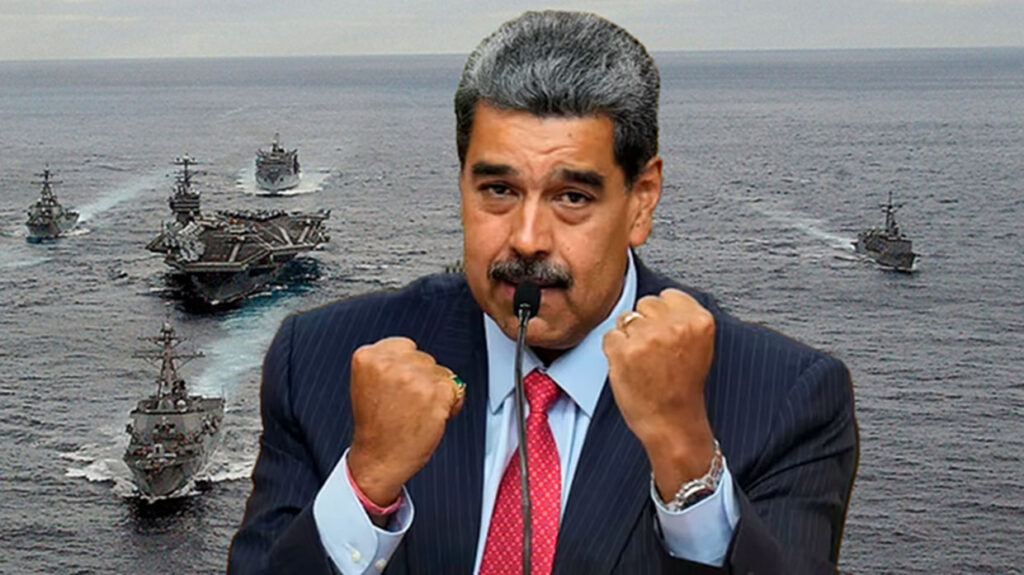Carlos Taylhardat |3 Narratives News | September 16, 2025
France has quietly joined the United States in a new naval operation off the coast of Venezuela, a move signalling that Europe is no longer content to fight its drug war only at home. The patrols target the cocaine routes that begin in South America and end in European streets, where seizures are already at record highs.
“Cocaine is no longer a trickle into Europe; it’s a torrent,”
A European official warned earlier this year, after historic busts in Spanish and Dutch ports. By teaming up in the Caribbean, Washington and Paris hope to choke off the supply at its source. But the decision raises urgent questions: Why Venezuela? How do drugs flow so efficiently across the Atlantic? And what does this mission mean for Europe’s future security — protection, projection, or something more?
The Security Case: Shielding Europe from a Cocaine Surge
From Paris to Rotterdam, European law enforcement reports record-breaking drug seizures. Spain’s ports and especially in Galicia, are key entry points for Colombian cocaine, with traffickers relying on Venezuela’s porous coastline to launch shipments. By partnering with the U.S. Coast Guard, France argues it is protecting its own citizens. Europol has repeatedly warned that the Caribbean corridor is now the most lucrative trafficking route to Europe.
Supporters of the mission frame it as proactive: fighting cartels far from home before drugs fuel addiction, organized crime, and gang violence in European cities. France also emphasizes solidarity with the U.S., noting that narco-networks fund militias, destabilize governments, and pose wider threats to Atlantic security.
The Critique: Neo-Colonial Policing of Latin America
Critics see something else: a familiar story of Western powers projecting force in Latin America. Venezuela, already battered by sanctions and political isolation, accuses Paris and Washington of using the “drug war” as a pretext for military presence in its waters. For many in the region, this echoes a century of U.S. interventions, from the 1904 Roosevelt Corollary justifying gunboat diplomacy, to Cold War operations backing coups in Chile, Brazil, and Guatemala. Each, critics say, was couched in security language but carried deep economic and political stakes.
Activists also question effectiveness. The UN Office on Drugs and Crime reports that seizures at sea rarely dent global supply. In fact, coca cultivation in Colombia reached record levels in 2023, despite decades of militarized campaigns. According to the International Crisis Group,
“interdiction simply shifts trafficking routes, while leaving demand untouched.”
For human-rights groups, the concern is not just futility but collateral impact. Venezuelan and Caribbean fishermen complain of harassment by naval patrols. Regional NGOs warn of sovereignty erosion, with local governments pressured to align with U.S. and European priorities. “This is not about cocaine,” a Colombian academic told Al Jazeera. “It’s about who controls the Caribbean corridor.”
From this vantage, the warships are not symbols of partnership but of hierarchy: Western capitals dictating the security agenda of smaller states, often with little consultation or benefit to the communities most affected by drug violence.
Venezuela and Maduro: What France’s Naval Role Means for Sovereignty

While France has not issued new statements directly targeting Nicolás Maduro, President Emmanuel Macron has previously described Venezuela under his rule as a
“dictatorship… trying to survive at an unprecedented humanitarian cost.”
He also dismissed Maduro’s 2018 re-election as “illegitimate,” aligning France with much of Europe in questioning his government’s legitimacy. Today, by joining U.S. patrols off Venezuela, France adds symbolic weight: it suggests that Paris, like Washington, views the Maduro administration as incapable of controlling — or complicit in — the trafficking networks off its shores. For Maduro, the operation is framed as a violation of sovereignty and proof of Western aggression, but for France, it is a way to demonstrate that the cocaine routes from South America to Europe are no longer just America’s problem, but Europe’s as well.
The Silent Story: Forgotten Victims Between Two Continents
Lost in the headlines are those who live along the smuggling routes. Venezuelan fishermen are often coerced by cartels while risking their lives moving shipments. Caribbean islands such as Martinique and Guadeloupe, technically French territories, are increasingly used as staging posts, leaving local communities caught between traffickers and foreign patrols.
Meanwhile, in Europe, the silent victims are addicts and their families. Cocaine use has doubled in parts of Spain and Belgium, with overdose deaths rising sharply. The European Monitoring Centre for Drugs and Drug Addiction warns of a looming public health crisis. Yet treatment services remain underfunded compared with the billions spent on interdiction at sea.
In the end, the third narrative may be this: the war on drugs is not just about interdiction or geopolitics, but about people — those coerced into smuggling, those imprisoned, and those struggling with addiction across two continents.
Key Takeaways
- France and the U.S. have launched joint patrols off Venezuela to disrupt cocaine routes feeding Europe.
- Supporters say the mission shields Europe from drug-fueled violence and addiction.
- Critics warn it is another example of Western intervention in Latin America with limited impact on supply.
- The overlooked victims include Venezuelan fishermen, Caribbean islanders, and European addicts.
Frequently Asked Questions
Why are France and the U.S. patrolling off Venezuela?
Venezuela’s coast is a major launch point for cocaine shipments bound for Europe, often routed through the Caribbean before crossing the Atlantic.
How is cocaine trafficked from South America to Europe?
Smugglers use fishing boats, commercial containers, and even semi-submersibles. Major ports in Spain, Belgium, and the Netherlands serve as entry hubs for European distribution.
Why does this matter for Europe’s well-being?
Rising cocaine supply has fueled addiction, gang violence, and public health crises. Europol and the EU warn of growing cartel influence in European cities.
Is this kind of military intervention effective?
Seizures disrupt supply chains temporarily, but critics argue that demand reduction and treatment are more effective long-term solutions.
Who are the hidden victims?
Fishermen coerced into smuggling, island communities caught in crossfire, and families in Europe dealing with addiction all bear the human cost of the trade.
🔗 Related Reads: War of Ukraine and Russia — Bad Call, Global Protest Coverage, The U.S. Constitution: Living or Outdated?



[…] in Brazil feel like two sides of one truth: who gets protected, who gets showcased, and who is forced to absorb the cost of stability when the world is […]